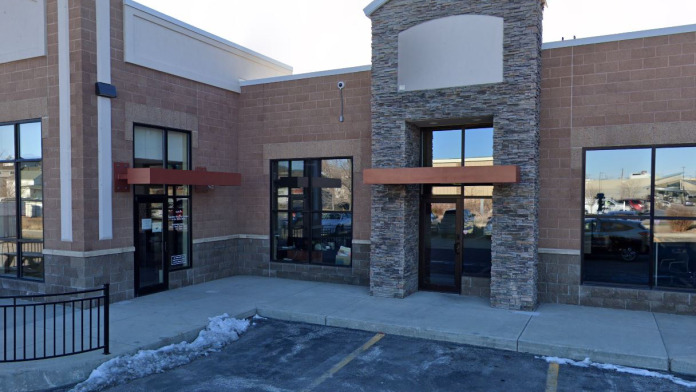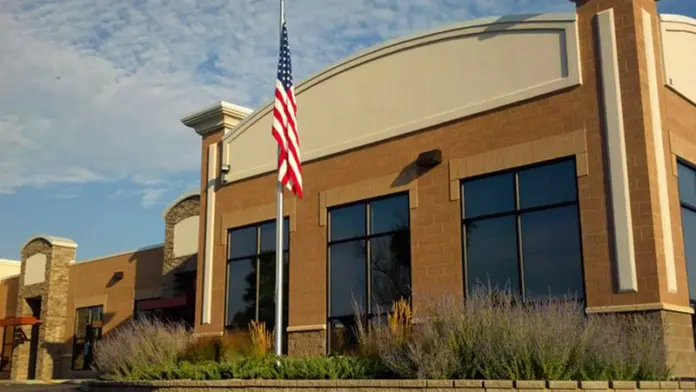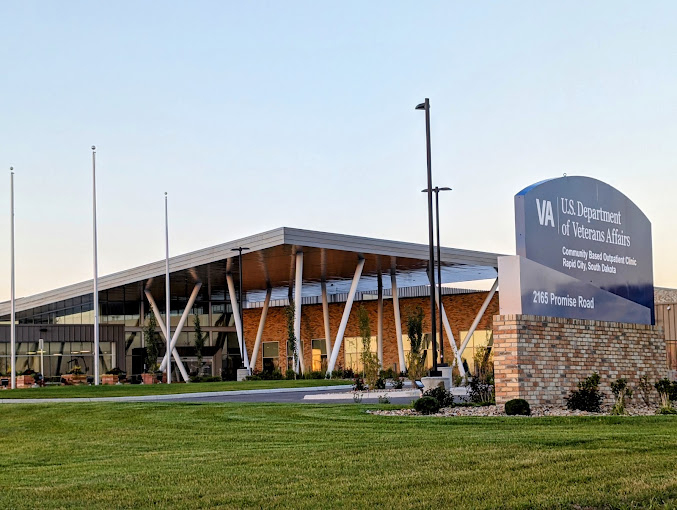Their hearts are in the right place, both patients and staff (especially my counselor). I really appreciate the staff and the program for all they did in my life. This whole experience truly has helped me in my life. I was finally able to restore the trust I lost with my fam ...
About Addiction Recovery Centers Of The Black Hills
Addiction Recovery Centers of the Black Hills located in Rapid City, South Dakota, is an outpatient substance use disorder treatment center. There is a sister location in Hot Springs South Dakota. The Center provides flexible scheduling for individuals to be able to remain at home, in their jobs and in school while also attending treatment. The Center accepts most forms of insurance and private pay.
Intensive Outpatient Program
The Center provides an intensive outpatient program (IOP) with group sessions for substance and gambling addictions. Telehealth groups are also available. Programming includes alcohol and drug assessments, accelerated resolution therapy, cognitive behavioral intervention, individual sessions and co-occurring mental health counseling. Participants also receive continuing care after completion of the IOP.
Court-System Treatment Program
Additional services such as DUI classes, gambling assessments, and moral reconation therapy for clients referred by the court system and their attorneys is available through the CBISA program. The curriculum was developed by the University of Cincinnati Correction Institute using cognitive behavioral therapy to address the legal impact of substance use and problem gambling that cause legal problems.
It focuses on how high-risk behaviors can be changed through recognition of negative thought processes causing poor decision making. By changing negative thought patterns, self-destructive behavior can change into positive outcomes.
Moral reconation therapy has also been developed by the correctional industry to address recidivism in the legal system. It seeks to redefine the moral compasses in clients with a history of reoffending. By learning to identify negative and positive decision making processes, clients learn to redirect their sense of right and wrong, make better choices, and learn to live outside of incarceration.
Latest Reviews
Rehab Score
Gallery




Accepted Insurance
Other Forms of Payment
Private insurance refers to any kind of healthcare coverage that isn't from the state or federal government. This includes individual and family plans offered by an employer or purchased from the Insurance Marketplace. Every plan will have different requirements and out of pocket costs so be sure to get the full details before you start treatment.
Self-pay involves paying for treatment out of your own pocket. You can use savings or credit, get a personal loan, or receive help from family and friends to fund your treatment. If you don't have insurance or your insurance plan doesn't cover a specific program, self-pay can help ensure you still get the care you need.
Financial aid can take many forms. Centers may have grants or scholarships available to clients who meet eligibility requirements. Programs that receive SAMHSA grants may have financial aid available for those who need treatment as well. Grants and scholarships can help you pai for treatment without having to repay.
Sliding scale payments are based on a client's income and family size. The goal is to make treatment affordable to everyone. By taking these factors into account, addiction recovery care providers help ensure that your treatment does not become a financial burden to you or your family, eliminating one barrier to care.
Medicaid is a state based program that helps lower-income individuals and families pay for healthcare. Medicaid covers addiction treatment so those enrolled can use their coverage to pay for rehab. When a program accepts Medicaid the client often pays very little or nothing out of their own pocket.
Military members, veterans, and eligible dependents have access to specific insurance programs that help them get the care they need. TRICARE and VA insurance can help you access low cost or no cost addiction and mental health treatment. Programs that accept military insurance often have targeted treatment focused on the unique challenges military members, veterans, and their families face.
Addiction Treatments
Levels of Care
Outpatient Programs (OP) are for those seeking mental rehab or drug rehab, but who also stay at home every night. The main difference between outpatient treatment (OP) and intensive outpatient treatment (IOP) lies in the amount of hours the patient spends at the facility. Most of the time an outpatient program is designed for someone who has completed an inpatient stay and is looking to continue their growth in recovery. Outpatient is not meant to be the starting point, it is commonly referred to as aftercare.
Intensive Outpatient Programs (IOP) are for those who want or need a very structured treatment program but who also wish to live at home and continue with certain responsibilities (such as work or school). IOP substance abuse treatment programs vary in duration and intensity, and certain outpatient rehab centers will offer individualized treatment programs.
Rehab aftercare programs provide robust continuing care for clients in outpatient rehab and those who have been discharged from formal treatment. These programs address addiction disease as a chronic condition and recovery as a life-long process requiring ongoing client support. Clients in drug rehab aftercare receive a wide variety of services, often including peer coaching, relapse prevention support, and 12 step program induction. Case managers and care teams typically collaborate on the client's long-term care plan.
12 step programs are designed to address the root causes of addiction and to promote sustained recovery through peer support and personal growth. Participants receive one-on-one mentoring from a self-selected sponsor and engage in regular 12 step meetings, which are free, anonymous, open to the public, and available day and night in most communities. These programs deploy non-denominational spiritual precepts to support participants' self-compassion, personal accountability, and acceptance of that which cannot be changed.
Treatments
The goal of treatment for alcoholism is abstinence. Those with poor social support, poor motivation, or psychiatric disorders tend to relapse within a few years of treatment. For these people, success is measured by longer periods of abstinence, reduced use of alcohol, better health, and improved social functioning. Recovery and Maintenance are usually based on 12 step programs and AA meetings.
Support provided by drug rehab in South Dakota includes social, physical, and emotional aspects. Program participants learn how to meet needs in each of these areas without turning to drugs. The goals of the program are freedom from drug dependency and long-term recovery.
Many of those suffering from addiction also suffer from mental or emotional illnesses like schizophrenia, bipolar disorder, depression, or anxiety disorders. Rehab and other substance abuse facilities treating those with a dual diagnosis or co-occurring disorder administer psychiatric treatment to address the person's mental health issue in addition to drug and alcohol rehabilitation.
Opioid rehabs specialize in supporting those recovering from opioid addiction. They treat those suffering from addiction to illegal opioids like heroin, as well as prescription drugs like oxycodone. These centers typically combine both physical as well as mental and emotional support to help stop addiction. Physical support often includes medical detox and subsequent medical support (including medication), and mental support includes in-depth therapy to address the underlying causes of addiction.
Substance rehabs focus on helping individuals recover from substance abuse, including alcohol and drug addiction (both illegal and prescription drugs). They often include the opportunity to engage in both individual as well as group therapy.
Programs
Adult rehab programs include therapies tailored to each client's specific needs, goals, and recovery progress. They are tailored to the specific challenges adult clients may face, including family and work pressures and commitments. From inpatient and residential treatment to various levels of outpatient services, there are many options available. Some facilities also help adults work through co-occurring conditions, like anxiety, that can accompany addiction.
Young adulthood can be an exciting, yet difficult, time of transition. Individuals in their late teens to mid-20s face unique stressors related to school, jobs, families, and social circles, which can lead to a rise in substance use. Rehab centers with dedicated young adult programs will include activities and amenities that cater to this age group, with an emphasis on specialized counseling, peer socialization, and ongoing aftercare.
Clinical Services
The core concepts of cognitive behavioral therapy in South Dakota are that patterns of thoughts and behaviors are linked and that they can be changed. Treatment involves identifying negative patterns and learning how to change them into positive ones.
Dialectical behavior therapy teaches you coping skills and problem solving. You'll learn how to manage your emotions and use your new skills to create healthier patterns of thought and behavior. Treatment typically lasts six months and includes individual and group sessions.
Group therapy is any therapeutic work that happens in a group (not one-on-one). There are a number of different group therapy modalities, including support groups, experiential therapy, psycho-education, and more. Group therapy involves treatment as well as processing interaction between group members.
You received personalized attention in individual therapy sessions so you can explore the struggles with substance use that are unique to your situation. Your therapist will help you develop effective coping mechanisms and strategies to improve your emotional regulation and resilience. These components are crucial to achieve and maintain long term recovery.
Motivational interviewing involves an exchange of information between the client and therapist. Communication is a two way street that allows the client to explore the possibility of making changes and lets the therapist provide empathy and support. The therapist also guides the conversation to instill language that encourages change.
Trauma therapy addresses traumatic incidents from a client's past that are likely affecting their present-day experience. Trauma is often one of the primary triggers and potential causes of addiction, and can stem from child sexual abuse, domestic violence, having a parent with a mental illness, losing one or both parents at a young age, teenage or adult sexual assault, or any number of other factors. The purpose of trauma therapy is to allow a patient to process trauma and move through and past it, with the help of trained and compassionate mental health professionals.
While participating in couples therapy, you'll attend weekly sessions with your partner. The therapist will help you talk through the challenges you're facing and establish goals for treatment. You'll learn insights on how to manage those issues and receive homework assignments to practice new behaviors.
Research clearly demonstrates that recovery is far more successful and sustainable when loved ones like family members participate in rehab and substance abuse treatment. Genetic factors may be at play when it comes to drug and alcohol addiction, as well as mental health issues. Family dynamics often play a critical role in addiction triggers, and if properly educated, family members can be a strong source of support when it comes to rehabilitation.
Staff & Accreditations
Staff

Julie Birner, MS, MSW, LCSW-PIP, LAC
Director

Diana Boyle, MS, LPC, NCC, CEAP, LAC
Clinical Supervisor
Accreditations

State Licenses are permits issued by government agencies that allow rehab organizations to conduct business legally within a certain geographical area. Typically, the kind of program a rehab facility offers, along with its physical location, determines which licenses are required to operate legally.
State License: South Dakota

The Joint Commission, formerly known as JCAHO, is a nonprofit organization that accredits rehab organizations and programs. Founded in 1951, the Joint Commision's mission is to improve the quality of patient care and demonstrating the quality of patient care.
Joint Commission Accreditation: Yes
Contact Information
1520 Haines Ave
#6,
Rapid City, SD 57701





